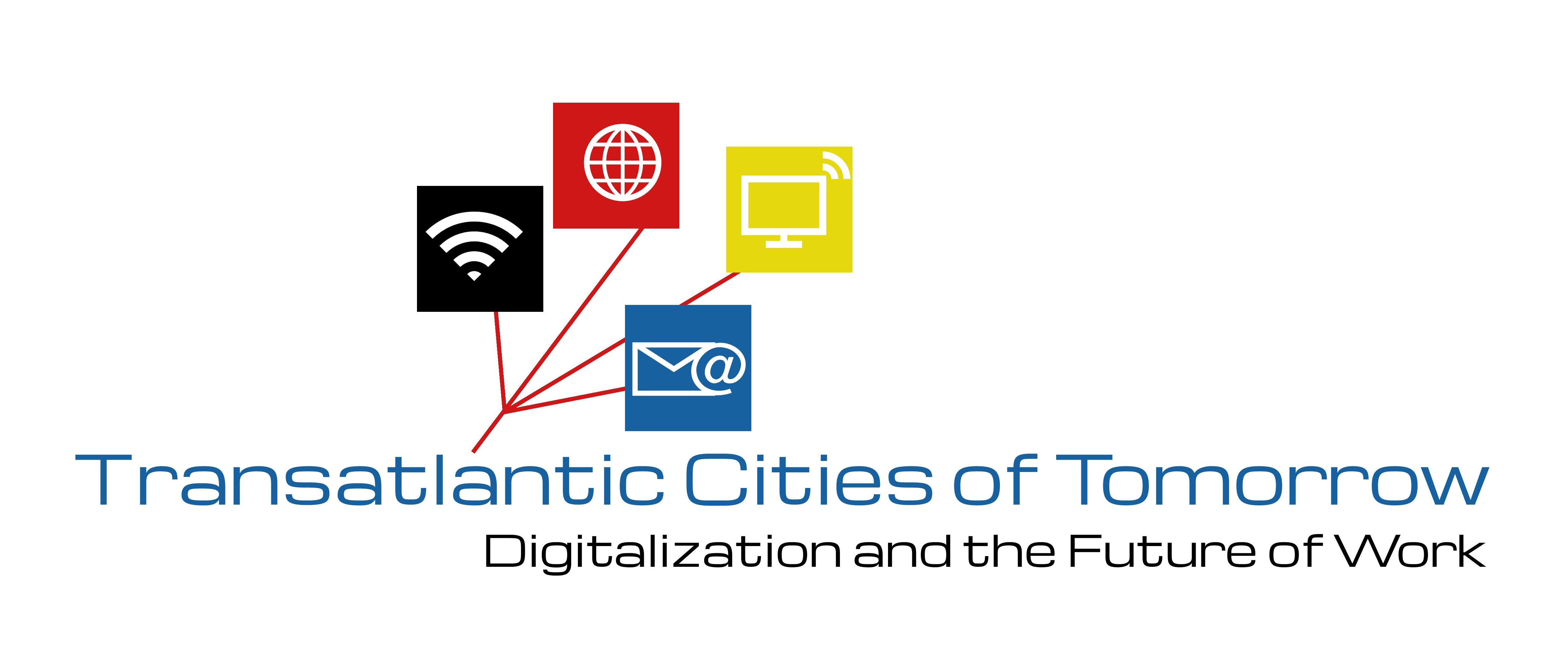
From 2019 to 2023, Transatlantic Cities of Tomorrow: Digitalization and the Future of Work engaged over 88 thought-leaders and practitioners from 12 cities in six U.S. states and 12 cities in eight German Länder, giving them valuable tools, approaches, and strategies to make a successful and effective transition to a digital economy in their local communities. In order to enhance both the substantive impact and the longer-term sustainability of the Transatlantic Cities of Tomorrow: Digitalization and the Future of Work network, the program was not be structured as multi-city study tours, but rather leaders from cities in each country was be paired with one another so that they may focus more in-depth on a single community in the other country and build deeper relationships with their professional counterparts.
The initiative consisted of four rounds of reciprocal exchanges, virtual components prior to, during, and following the trips, as well as a final conference that included all the participants and other actors involved in the implementation of the initiative. A key element of the project is the ACG’s intent to provide the participants with an opportunity for the practical – and immediate – exchange of ideas, best practices, and policy recommendations relevant to their cities and regions. The selected participants shared insights regarding their local circumstances, enabling them to work with their counterparts in other cities to define strategies and develop specific, hands-on approaches that could be potentially implemented in their cities and regions over the next five years.


